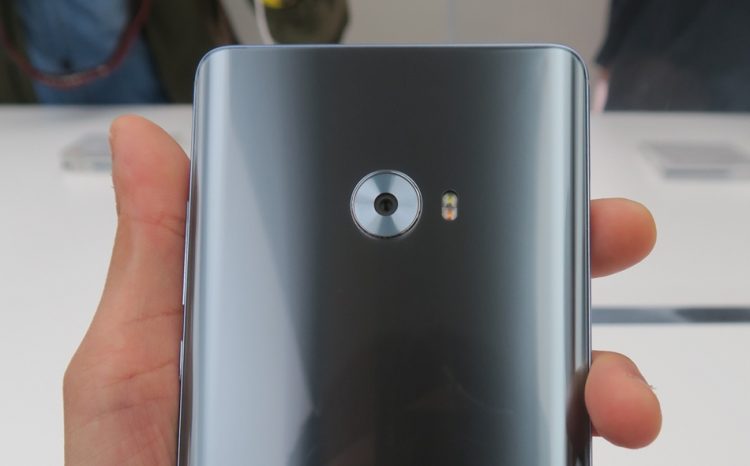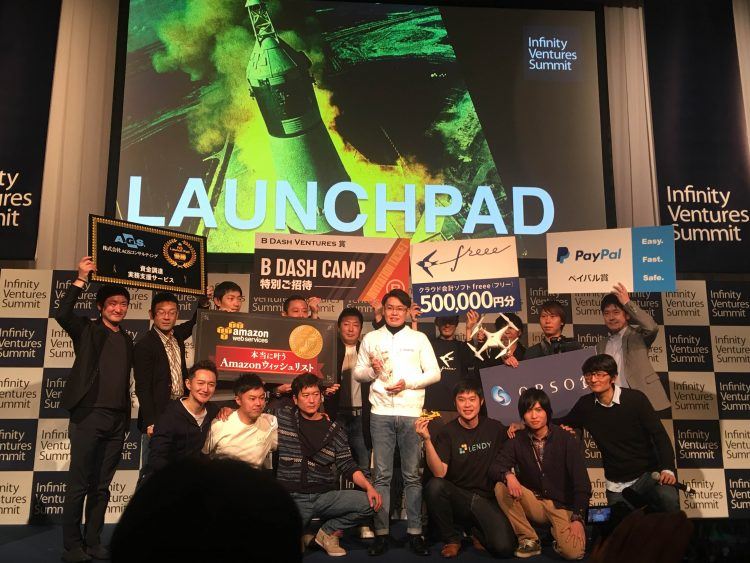The pitch contest at Infinity Ventures Summit (IVS) is worth your time. While many such events feature startups that will only capture a brief moment in the sun, the IVS Launchpad has a history of attracting the future stars of Japan’s startup ecosystem.
Past participants include widely-admired firms like crowdsourcing startup Crowdworks, accounting and business support service Freee, and alterative wheelchair Whill.
Today, 14 young startups – listed below in alphabetical order – took the stage in front of a packed conference hall. Read on to find the winner. Hint: the startup also took the top spot in a Tech in Asia pitch contest last year.
CodeCheck

Photo credit: Shutterstock.
To save time and money in hiring engineers, CodeCheck creates customized skill assessments for engineers. Major firms like Line, Sony, and Recruit are already using it for their businesses.
Though the business has only been operational for about eight months, it expects to hit 7,000 tests served by the end of the year. Further, Fujifilm is integrating the service into its regular hiring process for 2017. CodeCheck claims it reduces the time needed for assessments by 30 percent.
Combinator

Image credit: rawpixel / 123RF Stock Photo.
Combinator’s primary service, Refcome, specializes in reference hiring. As many hiring managers know, agencies are expensive and finding ‘the chosen one’ is time consuming. Instead of placing the burden on employees to have perfect pitches for the company and job position, Refcome makes customized job pages that employees can simply email to their friends.
47 firms are already using it, including heavy hitters like CyberAgent and DeNA.
Fraud Alert

Photo credit: Pixabay.
The startup aims to address a key pain point in fraud prevention – high-level security often results in poor user experience. Founders have to struggle with complex technologies and users have to navigate a variety of questions, challenges, and other hurdles to verify their identity.
Fraud Alert makes life easy for companies by having a simple Javascript API that can activate security measures for a website or app. The security is based on the behavior patterns of users. If you log in from a different IP addresses or device, additional verification is required.
The startup’s main target is small and medium-sized enterprises. It believes that the security market in Japan for banks and other large institutions runs around US$1 billion, but SMEs cover an additional US$5 billion opportunity.
iQra-Channel

Photo credit: Pexels.
iQra (pronounced ee-ku-ra) is a play on a Japanese homonym meaning “price.” It’s a fitting pun for a real estate sale website. An Osaka startup, it is fighting against Japan’s poor real estate sales practices. The country currently ranks 26th in the world for real estate transparency.
The website helps sellers understand what their homes and apartments are worth so they can better assess the many real estate firms offering to help sell the properties. It currently has 150,000 monthly unique users and will soon be coming to Tokyo – Japan’s busiest real estate market.
LEAP

Photo credit: Binil Benjamin.
LEAP, which stands for Let’s Agriculture Program, makes greenhouses for people who want to get into the farming industry. Rather than shell out the cost for a farm or an elaborate brick-and-mortar structure, people can apply online and start doing part-time work at a greenhouse near them. The company provides soil, potted bags, plants, and the physical greenhouse to folks looking to manage an agricultural operation.
LEAP’s 600 square-meter greenhouses can produce approximately US$42,000 in yearly revenue for tomatoes – over 6x improvement from the US$6,500 revenue generated by a 1,500 square-meter plot of tomato farmland.
Leap took 3rd place.
Lendy

Image credit: GotCredit.
Lendy is the latest fintech startup from Japan. As the name suggests, it lends to small businesses that don’t grow quickly enough to secure venture capital but also lack the scale of revenue to entice reasonable bank loans.
Using a proprietary scoring model, public data like credit ratings, and information supplied by the company during registration, Lendy is able to structure the right loan. Typical loans would be about US$20,000, for 8-15 percent interest, and have an expected payback period of 6 months.
Regarding creditors, the startup claims it can reduce loan defaults by 30 percent, making its service more appealing than traditional lenders.
Lendy took 4th place.
M&A Cloud

Photo credit: geralt.
Though Japan’s stock exchange is friendly towards small and medium ompanies, the mergers and acquisitions market is not. M&A Cloud is a database and matching service designed to connect SMEs to the larger companies that can and should purchase them.
SMEs fill in a survey – anonymously if they prefer – and get a report within 24 hours. The value is determined by looking at similar past acquisitions. The company can then be “listed” and potential buyers can make comments and bids.
Twelve M&A advisory firms are currently using the site, which has 200 SMEs registered and looking for potential buyers.
MyDearest

Photo credit: wamsler / 123RF.
In a bid to provide a ‘full dive novel’, MyDearest is a VR service that produces original stories for users to experience. When wearing a VR headset, the user is transported to a 3D environment that resembles that of the original story they chose to read. While remaining in the 3D world, they can make the story text appear. Users can interact with characters on a limited basis.
If the book was Harry Potter, it would be like popping on a VR headset and being transported to the Gryffindor study where you would proceed to read the book and occasional say hi to characters as they pass by.
The startup will sell its original stories for US$5-7.
Orphe

Photo credit: Redd Angelo.
Orphe is smart footwear that is gaining popularity in the dance community. Following a successful Indiegogo campaign, it has attracted the attention of artists and dancers looking to add a special element to performances.
The shoes light up and can connect to projectors and speakers via an app. A skilled dancer can create a compelling performance of light and sound.
The core motion sensing technology has other potential uses ranging from next-generation Dance Dance Revolution to rehabilitation assessment for the elderly or infirm.
Photoruction

Photo credit: Eva Xiao / Tech in Asia.
Though Japan is a technologically advanced nation, paper-based processes have not yet been eliminated. Construction sites represent one such pain point. In order to track progress and improve communication, construction teams take thousands of photos during the building process. A small apartment building might need 5,000 photos, while a giant department store or office complex will require upwards of 150,000. Each photo is printed and ultimately discarded at the end. Photoruction lets construction crews tag digital photos with the right identifying information and share them seamlessly online. If needed, the photos can be arranged in a PDF as well.
Though niche, Photoruction believes it can be the “AWS for construction productivity”. It took 5th place.
PocketMarche

Photo credit: Pixabay.
Japan’s farming and fishing industries are facing a shrinking market and penny-pinching distributors. To help flag lagging sales, PocketMarche makes it possible for farmers and fishers to sell their good directly to consumers.
On the buyer’s side, you browse the offerings, buy what you like, and the food gets delivered. It is a product that makes a lot of sense in Japan where local consumers enjoy sampling the best food from multiple regions and cities. To that end, the startup has rapidly expanded through the country and now delivers food from 37 of 49 prefectures.
PocketMarche took 2nd place.
Tasty Table

Photo credit: bhofack2 / 123RF.
Coming off its recent appearance at Tech in Asia’s “Road to Jakarta” event, Tasty Table also took the stage at IVS. As readers may remember, this service promises to “turn your home into a restaurant”.
It delivers ingredients and instructions for two different meals. Each feeds two people for a total cost of US$60.
unID

Photo credit: leowolfert / 123RF Stock Photo.
The second security startup of the competition, unID wants to make IDs and passwords obsolete. When looking at a homepage users would see unID as a sign-in option just the same as Facebook or Google.
Clicking unID generates a one-time four number code valid for a limited time. At the same time, the unID app on the user’s mobile device is automatically activated. Input the code and access is granted. Even if another individual with unID sees the code, they won’t be able to access the website in question because each one-time code is paired only with the user’s device.
The Winner

Startups, judges, sponsors, and hosts of Infinity Ventures Summit LaunchPad. The winner, Takayuki Aoki, CEO of Sorabito, is in the center.
Sorabito has been busy since appearing at Tech in Asia’s “Road to Tokyo” event in July 2015. Its flagship product Allstocker – Amazon for second-hand construction equipment – continues to grow and now boasts 30,000 products. That’s double since we last saw them.
It also successfully reached beyond Japan, with language support for seven languages including Chinese and Vietnamese. The service replaces on-site inspection and negotiation by providing remote quality inspections, payment services, transportation, and language localization. Now, it is adding an online auction for the construction goods.
And one more piece of good news – Sorabito took first place at IVS Launch Pad.
This post https://www.techinasia.com/infinity-ventures-summit-launch-pad-fall-2016 appeared first on Tech in Asia.
from Tech in Asia https://www.techinasia.com/infinity-ventures-summit-launch-pad-fall-2016
via IFTTT
No comments:
Post a Comment